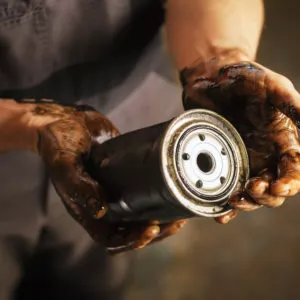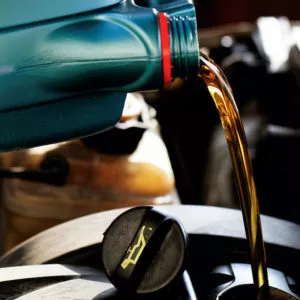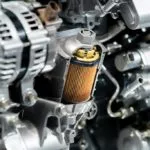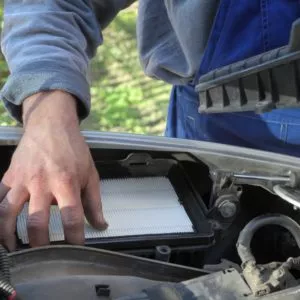Your car’s oil filter might seem simple—but it plays a vital role in engine protection. Without the filter, contaminants, such as dirt and metal particles, could reach critical internal engine components, causing damage.
The good news is, changing your car’s oil filter is usually inexpensive and easy to do. It’s a simple way to keep your engine running better, longer.
But you don’t want to crawl under your vehicle or visit the mechanic more often than necessary. So, to avoid wasting time and money, you’ll want to know exactly when to change your oil filter.
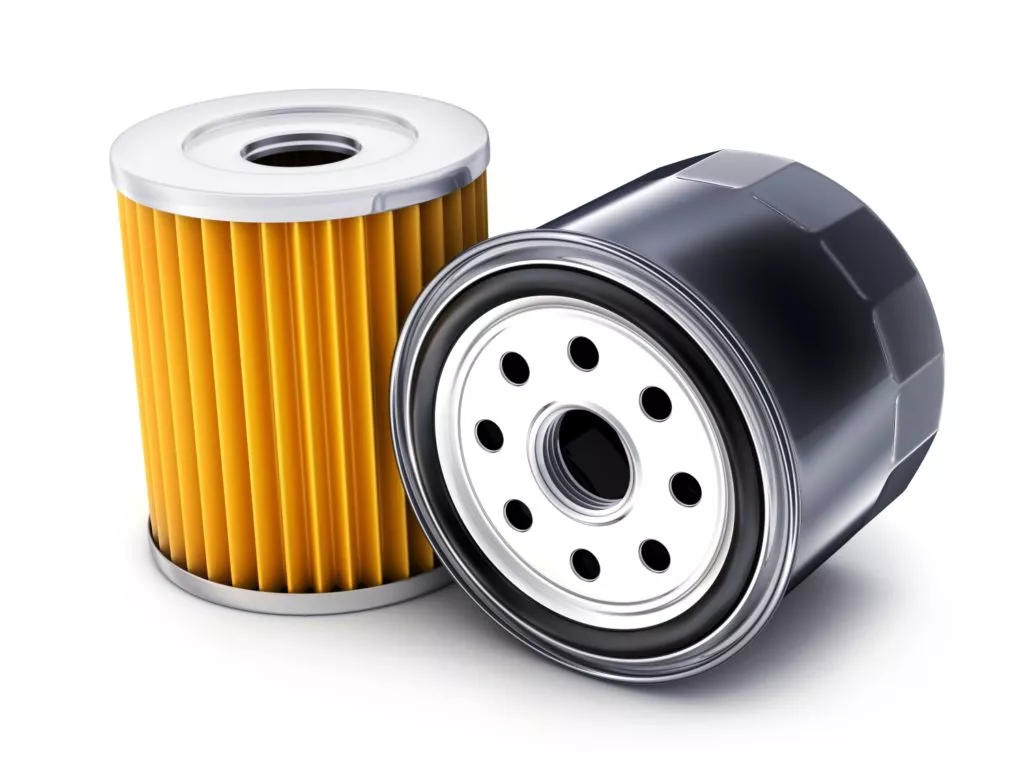
When to Change an Oil Filter
Okay—so you know that the engine oil filter is essential and should be replaced often. But how do you know when your oil filter needs to be changed exactly?
The answer is: you should replace the oil filter whenever you change the engine oil. Unfortunately, there isn’t a one-size-fits-all answer as to when the oil should be changed. The interval will depend on the type of vehicle you have.

To determine when you should change your car’s engine oil and filter, you’ll want to consult the vehicle manufacturer’s maintenance schedule. The schedule outline can be found in your owner’s manual or supplemental service booklet.
Watch these videos to understand how to change your oil and oil filter:
What Does an Oil Filter Do?
The oil filter traps contaminants within its fibers to prevent dirt and debris from circulating through the engine. Before the oil can reach vital internal engine parts, such as the crankshaft and crankshaft bearings, it passes from the oil pump through the oil filter.
Also, the oil filter (or in some cases, the engine) contains a bypass valve. If the filter becomes saturated with contaminants to the point that it obstructs oil flow, the valve opens so that oil can lubricate the internal engine parts. The bypass valve also opens when the engine is first started to let cold oil, which is exceptionally thick, circulate more easily.
Of course, when the valve opens, it’s allowing unfiltered oil to circulate throughout the engine, which is less than ideal. To prevent the bypass valve from opening unnecessarily, you should replace the filter regularly.
Many oil filters also contain an anti-drain back valve. The valve prevents oil from draining out of the filter when the engine is off, thereby ensuring oil is readily available when the engine is restarted.
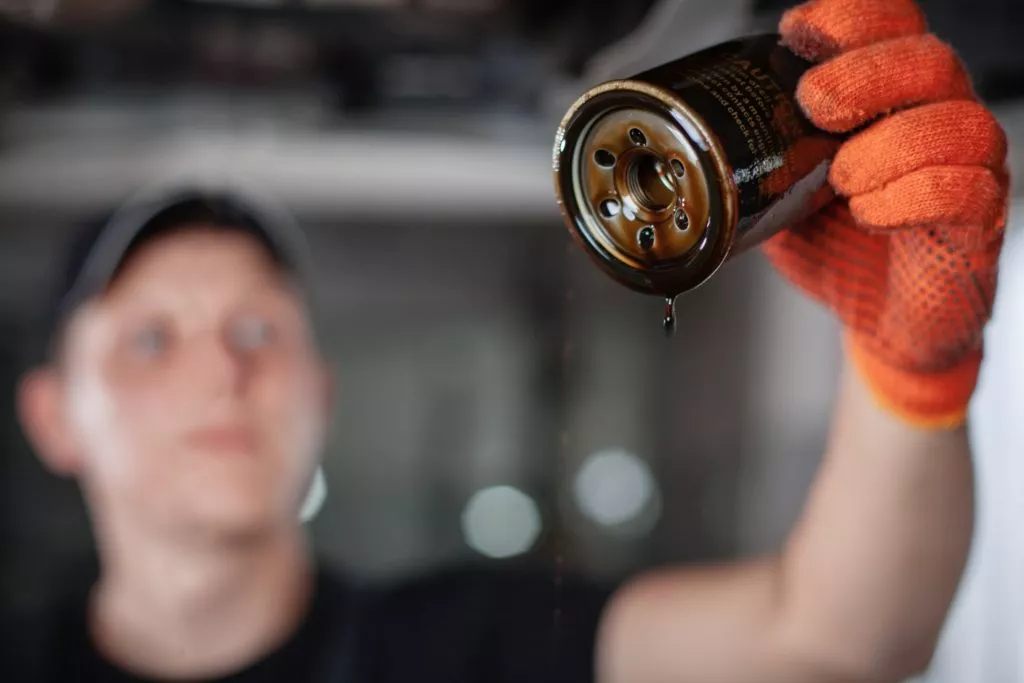
Symptoms of a Bad Oil Filter
Oil filters can become clogged due to contamination, or, although rare, they can be defective right out of the box. When the oil filter falters due to obstruction or a manufacturing flaw, you may notice one of the following symptoms:
Internal Engine Noise
A clogged filter will usually cause the bypass valve to open, allowing contaminants to circulate throughout the engine. Over time, those abrasive particles can score vital internal engine components (e.g., the crankshaft and crankshaft bearings), causing low oil pressure. The end result is usually a knocking noise from the engine.
Similarly, if the bypass valve is stuck closed for whatever reason, the top end of the engine will not get enough oil upon startup. In such a scenario, you’ll likely hear a rattling noise from the valvetrain when the engine is first started.
Oil Leaks
Spin-on, canister-style oil filters have a built-in seal. If that seal becomes damaged (or is defective), there will be an oil leak from the engine.
Illuminated Dashboard Warnings
As was mentioned, a faulty or obstructed oil filter can eventually result in a loss of oil pressure. When that happens, you may see warnings pop up on the dash, such as the check engine light and oil pressure warning light.

What Oil Filter Do I Need?
The design of an oil filter will vary depending on the application. Because of this, you’ll need to know your vehicle’s year, make, model, and engine size to be able to select the correct oil filter.
If you’re looking for a replacement oil filter for your vehicle, you can easily find one through the CarParts.com website. All you need to do is select your vehicle from the dropdown menu at the top of the page, then type your query into the search bar.
How to Get a Replacement Oil Filter
A dirty oil filter is bad news for your engine. Clogged with dirt, it can no longer effectively filter debris from your motor oil. This can cause poor engine performance and decreased fuel economy. Consider replacing your oil filter as soon as you notice any issues. Luckily, getting a new oil filter is fast and easy with CarParts.com.
CarParts.com offers a wide selection of oil filters that are sourced from the most trusted manufacturers in the industry. For easier browsing, just input your car’s details in our vehicle selector and search filters. CarParts.com also guarantees fast shipping, thanks to our strategically located warehouses around the US. Order by 12 PM ET, and you can expect your new oil filter to arrive in as fast as two business days.
Don’t wait until your dirty oil filter damages your engine before replacing it. Check out our catalog of high-quality oil filters at CarParts.com and order one today!
Any information provided on this Website is for informational purposes only and is not intended to replace consultation with a professional mechanic. The accuracy and timeliness of the information may change from the time of publication.


